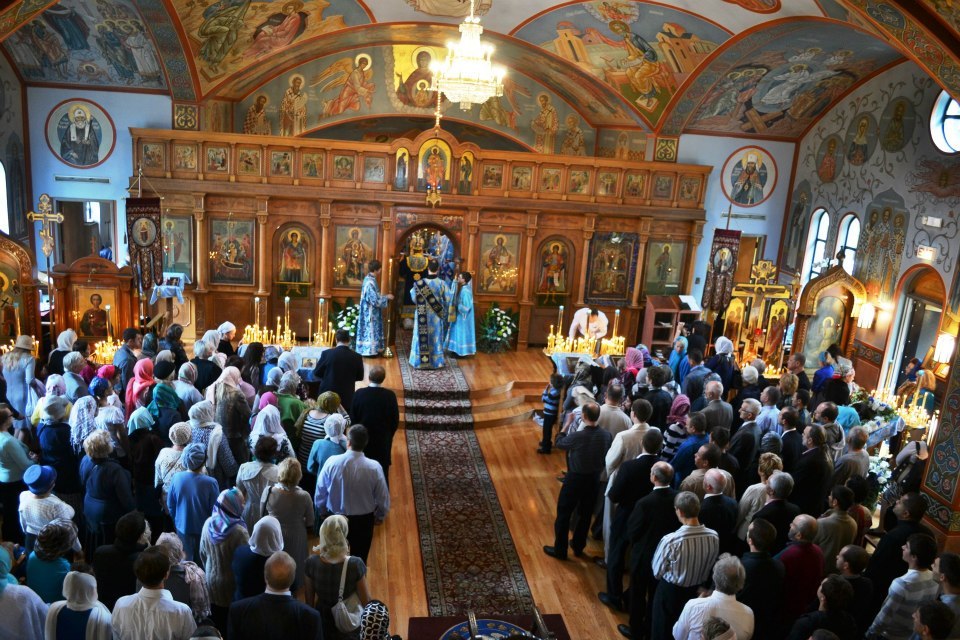by Thaddeus Baklinski
Thu Oct 18, 2012 13:40 EST
VOLGOGRAD, Russia, October 18, 2012, (LifeSiteNews.com) - An Orthodox priest in the Volgograd (formerly Stalingrad) region of Russia has been commended by the Russian Ministry of Health for his work in reducing the number of abortions in his district. His personal efforts in counseling and helping women to keep their babies has reduced the abortion rate in the Volgograd region by 25 percent over the past five years.
 Father Alexis Tarasov began his life saving work in his own parish in the town of Voljsk, where he said he spent hours talking with women who were considering abortion. He expanded his pro-life work with visits to the local hospital. Then, he and other like-minded priests, established a crisis pregnancy center.
Father Alexis Tarasov began his life saving work in his own parish in the town of Voljsk, where he said he spent hours talking with women who were considering abortion. He expanded his pro-life work with visits to the local hospital. Then, he and other like-minded priests, established a crisis pregnancy center.
With the support of his diocese, he approached the local authorities for help to expand the project.
“The program was approved in 2002 by the administration of Voljsk,” said Father Alexis. “Then the idea developed to create a regional center, with the support of the administration of Volgograd.”
The result was the creation of the Center for the Protection of Motherhood and Childhood, under the supervision the Archangel Raphael Orthodox Medical Society.
According to the Department of Health, more than 2,000 Volgograd women have chosen to abandon their original intention to have an abortion since that time.
Father Alexis explained that the focus of his project is simple: to provide women with trained and sympathetic listeners who will hear their concerns, give them full information on the abortion procedure and its potential effects on their own health and well-being, and offer them the material help they need.
“Quite often, the only thing needed to dissuade a mother from this terrible decision is simply to talk to someone with an open heart,” Father Alexis said.
Thu Oct 18, 2012 13:40 EST
VOLGOGRAD, Russia, October 18, 2012, (LifeSiteNews.com) - An Orthodox priest in the Volgograd (formerly Stalingrad) region of Russia has been commended by the Russian Ministry of Health for his work in reducing the number of abortions in his district. His personal efforts in counseling and helping women to keep their babies has reduced the abortion rate in the Volgograd region by 25 percent over the past five years.
 Father Alexis Tarasov began his life saving work in his own parish in the town of Voljsk, where he said he spent hours talking with women who were considering abortion. He expanded his pro-life work with visits to the local hospital. Then, he and other like-minded priests, established a crisis pregnancy center.
Father Alexis Tarasov began his life saving work in his own parish in the town of Voljsk, where he said he spent hours talking with women who were considering abortion. He expanded his pro-life work with visits to the local hospital. Then, he and other like-minded priests, established a crisis pregnancy center.With the support of his diocese, he approached the local authorities for help to expand the project.
“The program was approved in 2002 by the administration of Voljsk,” said Father Alexis. “Then the idea developed to create a regional center, with the support of the administration of Volgograd.”
The result was the creation of the Center for the Protection of Motherhood and Childhood, under the supervision the Archangel Raphael Orthodox Medical Society.
According to the Department of Health, more than 2,000 Volgograd women have chosen to abandon their original intention to have an abortion since that time.
Father Alexis explained that the focus of his project is simple: to provide women with trained and sympathetic listeners who will hear their concerns, give them full information on the abortion procedure and its potential effects on their own health and well-being, and offer them the material help they need.
“Quite often, the only thing needed to dissuade a mother from this terrible decision is simply to talk to someone with an open heart,” Father Alexis said.
...
Continue reading at lifesitenews.com


